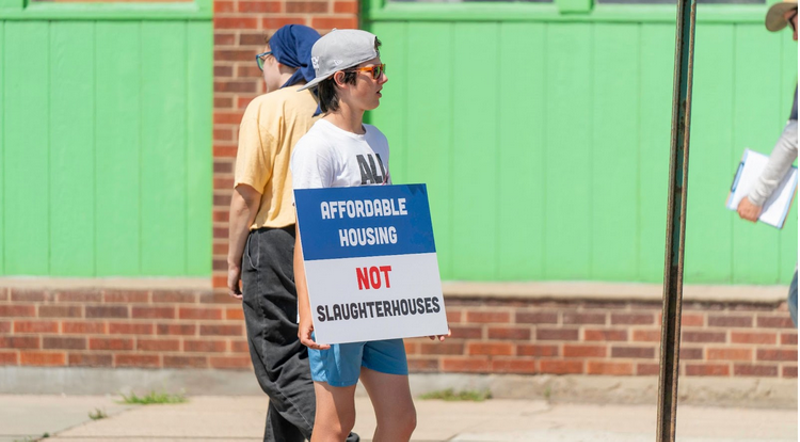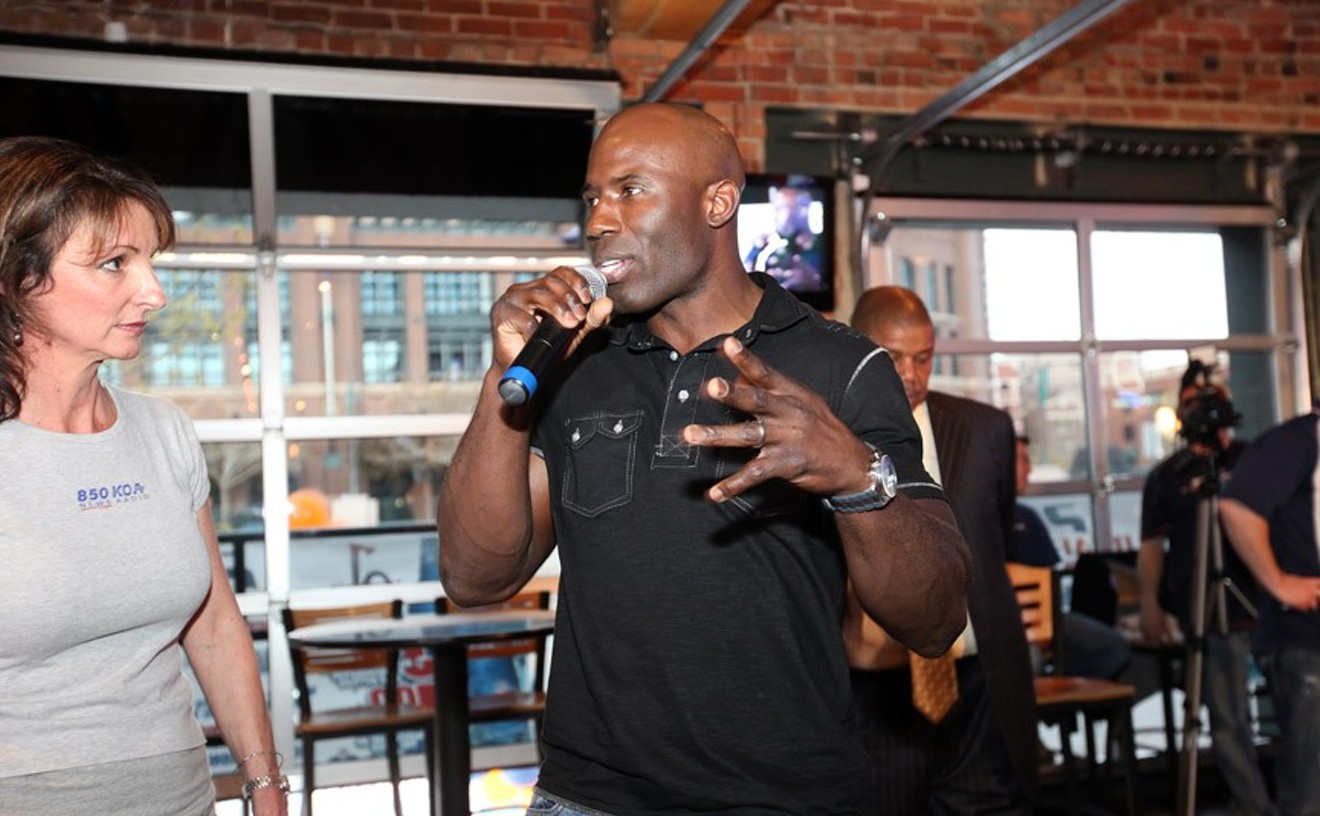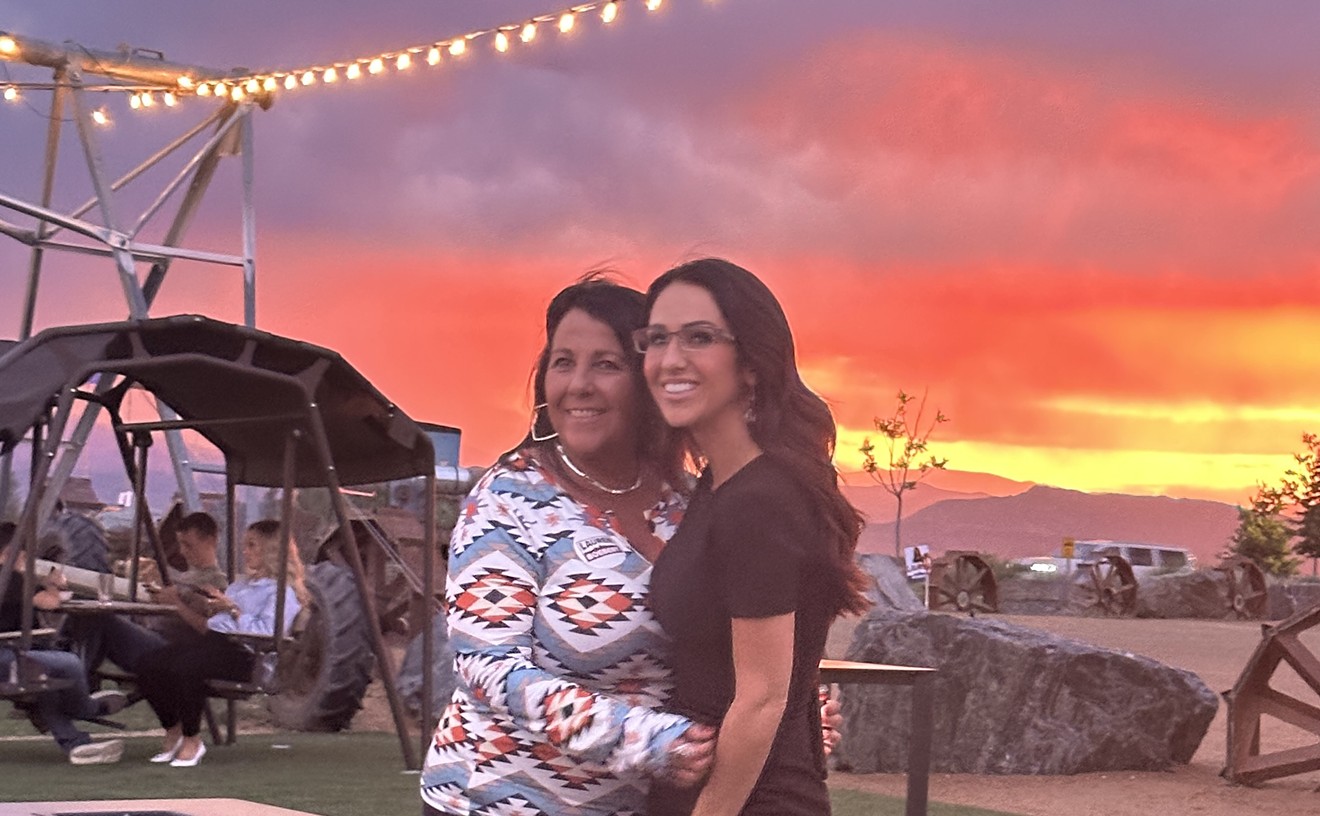In addition to nearly a dozen statewide ballot measures already on the docket, several city initiatives will appear on Denver's ballot for the November 5 election. Eight local measures have made the cut so far, with a handful of other proposals currently working through the process.
In Denver, proposals primarily get onto the ballot in one of two ways: By being referred directly by the city council, or by citizens collecting 8,940 petition signatures in support of the initiative. Council has until August 7 to refer measures to the ballot (but the council president can waive this deadline). Citizens had until June 13 to submit petitions; though the deadline and number of signatures needed changes if the initiative proposes an amendment to the city charter.
As the clock ticks down on the final weeks to add ballot measures, here are the issues you'll be voting on in November — plus the proposals that are still fighting for their spot:
Newly Approved
Collective Bargaining for City Employees On Monday, July 15, the Denver City Council voted to add an initiative to the November ballot that aims to give all city employees the right to unionize beginning in 2026, expanding collective bargaining rights for city employees beyond firefighters, police officers and sheriff deputies.
Proponents say the current ban on collective bargaining for most city employees leaves them without recourse when they face unsafe working conditions or unfair pay.
"If Denver employees can't afford to live here, who will care for the city's infrastructure?" said Molly Schumaker, a Denver Public Library custodian, during a council meeting on July 8. Schumaker said she makes minimum wage, though newer employees earn more than her. "Collective bargaining is a voice for workers and increases equality for traditionally marginalized groups," she added.
In addition to the city council, the proposal has earned the support of Denver Mayor Mike Johnston. But a couple of people spoke against it during the July 8 council meeting, including sixteen-year city employee Troy Bettinger, who feared unions would burden city workers with more administrative overhead and create a toxic work environment: "Protect Denver city employees from inefficiency, politics and divisiveness," he said.
Citizenship for Police and Firefighters
A second initiative approved by the council on Monday, July 15, would remove a requirement that people applying to be Denver police officers or firefighters be United States citizens. Proponents say the change would open the jobs up to legal permanent residents and DACA recipients, but undocumented immigrants would still be ineligible to apply because applicants must have valid work authorization.
This effort comes as law enforcement recruitment has dipped in Denver and nationwide.
"We want to provide a path to employment for all who deserve it," Councilmember Amanda Sandoval said while presenting the proposal on June 25. "We want to reduce employment discrimination, enhance diversity, inclusion and community-oriented policing, and assist with recruitment and retention issues."
The local firefighters' union and the Denver Police Department are backing the measure. The Denver Sheriff's Department already does not require citizenship for its applicants; Aurora and Boulder have dropped the requirement, as well. Colorado legislators passed a statewide law in 2023 allowing DACA recipients to carry firearms as law enforcement officers.
Already on the Ballot
Slaughterhouse BanA citizen-led initiative asks voters to prohibit the operation and construction of slaughterhouses in the city beginning in 2026. If passed, the measure would also require the city to prioritize former slaughterhouse employees in workforce training and employment assistance programs. Proponents submitted over 30,000 signatures in support of the proposal in November — more than three times the number needed.
The animal-rights group behind the measure, Pro-Animal Future, calls slaughterhouses "inhumane to workers, animals, and the surrounding communities they pollute." They reference studies on European-based slaughterhouses that found that cows and pigs were often not adequately electrically stunned before they were killed. "We believe it’s time to move away from harming animals for food, and that voters are the key to driving this change," the group says.
There is only one slaughterhouse in Denver: the largest lamb-packing plant in the country. Opponents of the ballot measure say shutting the slaughterhouse down would have devastating economic impacts on the state. Worst-case estimates include 2,787 jobs lost and a reduction of $861 million in economic activity, according to a report by the Regional Economic Development Institute at Colorado State University.
Fur Ban
The same citizen campaign created another initiative seeking to prohibit the manufacture, distribution, display, sale and trade of most animal fur products in Denver beginning in July 2025. Fur products would be exempt from the ban if they are used for cultural purposes by members of Native American tribes; created exclusively from used fur products; expressly authorized by federal or state law; or bought/sold by thrift stores, pawn shops and nonprofits.
Pro-Animal Future says the measure would help compel the fashion industry to end the practice of raising animals in captivity to later kill them for their pelts. "Fur is a cruel and unnecessary industry that has fallen out of public favor," the group says. Boulder voters narrowly passed a similar ban on new fur products in 2021.
Opponents call the proposal "anti-agriculture" and raise concerns that the ban would negatively impact local retailers. In particular, opposition groups have said the ban would harm the National Western Stock Show hosted in Denver, arguing that it would prohibit vendors from selling items at the show and "jeopardize the Stock Show’s ability or desire to remain in Denver."
Denver Health Sales Tax Increase
An initiative referred to the ballot by Denver City Council asks voters to establish a 0.34 percent sales tax to fund Denver Health, increasing the city's current 8.81 percent sales tax to 9.15 percent. That's an extra 34 cents on a $100 purchase, raising $70 million per year. Councilmembers approved adding the measure to the ballot on June 24.
Denver Health is one of few hospitals in Colorado that cares for patients regardless of their insurance status, providing around $140 million in uncompensated care in 2023, the Denver Post reported. The system has struggled financially for years, losing over $30 million in 2022 and relying on one-time grants in 2023. Proponents say it is incumbent upon the city to help a crucial safety-net service to continue operating.
"With the ever-increasing costs of living here in our city, it is upon us as residents and leaders to ensure that there are resources that catch those who would otherwise go without," Councilwoman Serena Gonzales-Gutierrez said while presenting the initiative on June 5. But opponents fear a precedent of relying on sales tax increases will hurt residents in the long run: "I have a serious concern about burdening Denver taxpayers," Councilmember Kevin Flynn said on June 5.
Elected Official Salary Approval
Councilmembers voted in April to refer an initiative to the ballot that would take away the council's power to approve their own salary increases. Instead of asking councilmembers to authorize raises for elected officials, the ballot measure would automatically increase salaries using the same formula that currently calculates raises every four years based on the consumer price index and other raises citywide.
If passed, the ballot measure would not impact raises or change how the salaries of elected officials are calculated, as that is mandated by the city charter. It would just remove the charter requirement that the council must vote to approve those salary changes. Proponents of the measure say even though councilmembers can't control what the raises are, it is a conflict of interest for them to approve their own salaries.
"This sets up what feels to our residents like a lack of transparency around this process. It looks like we're voting on our own raises when we are not," said Councilmember Amanda Sawyer, who sponsored the proposal, during a committee meeting on March 19. Councilmembers unanimously voted to send the issue to the ballot.
Human Rights Cabinet Agency
Another council-referred initiative would make the Department for Human Rights and Community Partnerships into a cabinet agency. This would make the executive director of the department a member of the mayor's cabinet, allowing them to help create general administrative policies for the city. The city council gave final approval to the initiative on July 8, officially adding it to the November ballot.
The department was created in 1947 by then-Mayor J. Quigg Newton to assess race relations in Denver, according to Councilmember Jamie Torres. "That was coming off of a mayoral administration where the mayor was a KKK member," Torres said while presenting the proposal on June 4. "This marked, for the city of Denver, a turn for really focusing and centering human rights and civil rights."
As a cabinet agency, the department would be given funding stability and symbolize Denver's "dedication to human rights and the well-being of its diverse communities," she said. The agency's responsibilities would include addressing human-rights issues involving underserved and historically marginalized populations, training city employees on issues facing those populations, and helping community groups access city services and communicate with the city.
Ballpark Improvement District
Unlike the other ballot measures on this list, this initiative will only appear for voters who live or own property in the Ballpark neighborhood. The measure, approved by Denver City Council on July 8, asks residents for permission to create a Ballpark General Improvement District (GID) for the neighborhood around Coors Field.
If passed by voters, the new GID would collect a special property tax from businesses and homeowners in the district to fund community improvements, specifically focusing on addressing public safety and homelessness. Numerous community members have spoken in support of the GID, including Candice Pineda, owner of Mexico City Restaurant & Lounge in Ballpark. "We want to keep our community safe, clean and fun," she said through tears. "This GID is vital for our community to fill in the gaps where the city cannot."
Opponents have raised concerns about the tax increase worsening financial hardships for neighborhood residents. The initiative allows the GID to impose an annual property tax of up to $5 for every $1,000 of assessed value for each commercial and residential property in the district's boundaries.
Still to Come
Affordable Housing Sales Tax IncreaseMayor Mike Johnston unveiled his own ballot measure proposal on July 8: A 0.5 percent sales tax increase to fund the creation and preservation of affordable housing in Denver. If passed, it would bring the city's current 8.81 percent sales tax up to 9.31 percent, generating around $100 million annually for affordable housing efforts. The proposal is awaiting a July 17 committee hearing before it can be sent to the full council. Five out of thirteen councilmembers signed on as sponsors.
According to Johnston, Denver will be short 44,000 affordable units by 2033 despite being on track to establish 19,000 affordable units during that time.
"This shortage will only grow if we don’t take action now," the mayor said in a statement. "Denver cannot be a vibrant, inclusive city without ensuring that teachers, nurses, first responders and seniors can continue to call Denver home."
The housing created by the fund would serve households making between 0 and 100 percent of the area’s median income, up to $91,280 for a single person. However, critics say making it more expensive to buy items isn't the right way to address expensive housing. Of Denver voters, 35 percent say taxes are already “way too high,” and another 29 percent say taxes are "high but acceptable," according to data from the Colorado Polling Institute released on July 10.
If voters approve this and the Denver Health tax increase, Denver's sales tax will hit 9.65 percent — the highest sales tax rate in the eastern portion of the state, beat by a handful of mountain towns.
Denver Public Schools Bond
The Denver Public Schools Board of Education is considering a proposal that would ask Denver voters for a $975 million bond to pay for maintenance and other projects — the most money the district has ever sought from voters. The proposal comes from the district’s Community Planning and Advisory Committee; the DPS board will vote in August on whether to send the ballot measure to voters.
The bond plan would pay for $301 million in maintenance at 154 buildings; $240 million to install air conditioning at 29 schools; $124 million for new facilities, including building a new school in far northeast Denver; $127 million to upgrade performing arts hubs, innovation centers and athletic facilities; $100 million to improve learning environments at 136 schools; and $83 million for safety and technology.
A recent survey of 500 likely Denver voters found that 67 percent would vote in favor of the bond, according to a poll by Denver Families for Public Schools and Keating Research released on July 10.
“Denver voters continue to be champions of resourcing our public schools, seeing the need for critical school improvements,” said Clarence Burton Jr., CEO of Denver Families, in a statement.












